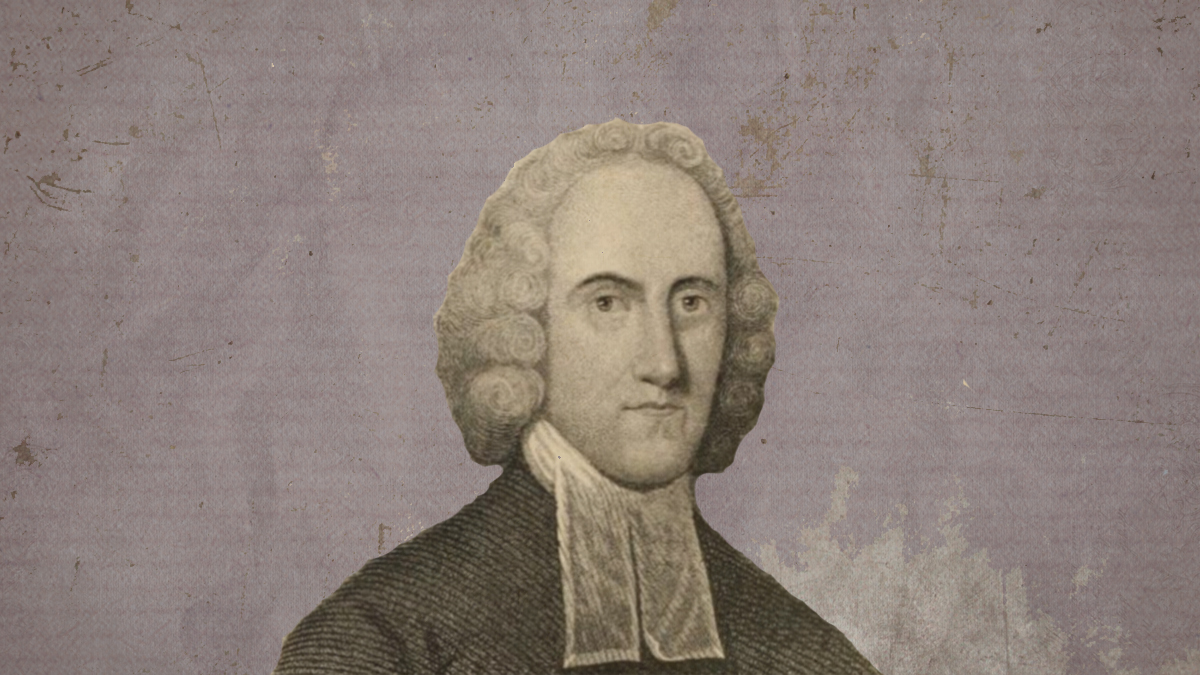
In the last post I sought to whet your appetite for the theological greatness and understanding the worthiness of studying Jonathan Edwards. We considered his love for the Trinity, how lively was his doctrine in his preaching, that he was inovatively Redemptive Historical, that his homiletic was suffused with a beautiful Christology and that he was deeply biblical, yet not naively biblicist.
In keeping with the opening illustration from that first post, my desire is for this post to be a cup of water to keep you in the race. Maybe, you considered the reasons in the last post and began to tackle something in JE, yet you are starting to feel the burn. As you come round the turn try to lay hold of 5 more reasons why we should marinate in JE today:

Most of us go through real times of spiritual melancholy in the Christian life. They can be brief or entire seasons in which, as Gisbertus Voeitus said, a person "fails to feel his or her heart's delight in God and divine things." If you have been a Christian for any period of time, you most likely have experienced this reality. In the midst of these times we often struggle to know why this feeling has crept into our hearts. It is good for us to search our hearts in times like this. We must ask the Lord to give us wisdom in identifying the cause--even as we continue to seek Him.

Just as the struggles we experience in our breathing should serve as warning signs that something is wrong with our physical health, so the struggles we experience in our praying should serve as warning signs that something is wrong with our spiritual health. We have a relationship problem. It is vital to remember, however, that when we struggle in our breathing, we are, nevertheless, still breathing. There is a big difference between struggling in our breathing and not breathing at all. The fact that we struggle means that we are alive. It is the absence of struggle that means there is no life. Like the prodigal, we need to be reminded daily both of our unworthiness and of the sovereign initiation and gracious and sacrificial institution of the intimate relationship we have with the Father. And we need to let that motivate all our communication with him.

If you take the time to actively engage your own story of grace and suffering you’ll not only learn more about what God has been doing in your life but you’ll also be equipped to care better for others. Often when someone is in a tight place, they are more likely to receive truth that is prefaced with, “I experienced something similar…” (2 Cor. 1:3-7).

Was Jesus God in the womb? Was Jesus God in the tomb? You probably answered yes to the first question, but hesitated to do so over the second, didn't you? Although it’s brain-bursting to think of God as an embryo, it’s brain-numbing to think of God as a corpse. Reason looks at the almost invisible fetus, that Jesus became in the womb of the virgin, and says, “God cannot become a microscopic collection of cells.” Then faith says, “I believe, help my unbelief,” and worships. But when our eye looks at that lifeless body in a cold garden tomb, now dead for over 48 hours, and we’re asked to bow in worship, we exclaim, “I don’t believe, help my unbelief,” and refuse to worship.




















 © Alliance of Confessing Evangelicals
© Alliance of Confessing Evangelicals


